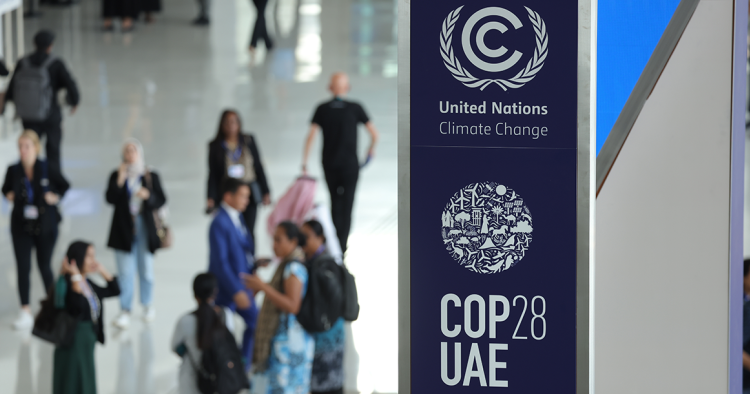The 2023 United Nations Climate Change Conference (28th Conference of the Parties, COP28) in Dubai carries a weighty set of expectations as the international community grapples with the urgent need to address the escalating climate crisis. As the successor to COP26, which saw heightened global awareness of the crisis and renewed commitments to addressing it, COP28 is anticipated to be a pivotal moment in the collective effort to mitigate climate change and adapt to its impacts.
Foremost among the expectations is the hope for stronger and more ambitious climate commitments from participating nations. The Intergovernmental Panel on Climate Change reports have consistently underscored the need for more aggressive action to limit global warming to 1.5° Celsius above pre-industrial levels. The world must reach this target, and nations must significantly enhance their nationally determined contributions to bridge the emissions gap. Hopes are high that COP28 will provide an opportunity for countries to announce updated and more robust climate pledges that reflect the latest scientific findings and technological advancements.
In addition to greater ambition, there is a growing call for concrete plans and strategies to achieve these commitments. The outcome of COP28 should provide a roadmap for implementing the Paris Agreement, outlining specific measures, policies, and investments needed to achieve the proposed targets. Transparency and accountability mechanisms will be crucial to ensure that nations follow through on their promises, and the conference is expected to establish frameworks for regular reporting and review processes.
Another key expectation for COP28 is that it will see the operationalization of loss and damage mechanisms to address the irreversible impacts of climate change that cannot be mitigated or adapted to, resulting in severe economic and non-economic losses for vulnerable communities. There is a pressing need for the international community to establish clear frameworks for dealing with loss and damage, including mechanisms for compensation, insurance, and support for affected communities. COP28 is expected to produce tangible outcomes that operationalize and fund the Warsaw International Mechanism for Loss and Damage, providing a concrete structure for dealing with the impacts beyond the capacity of adaptation.
The role of youth in climate action is gaining increasing recognition, and COP28 is anticipated to amplify their involvement. Youth activists and leaders have been at the forefront of demanding urgent climate action, and COP28 is expected to provide a platform for their voices to be heard and integrated into decision-making processes. The conference's outcomes should include mechanisms to enhance youth participation in climate-related initiatives, policy development, and implementation. Recognizing youth's innovative perspectives and energy, COP28 will likely foster collaboration between governments, civil society, and young leaders to drive meaningful change.
Incorporating the youth perspective also extends to climate education and awareness. COP28 is expected to prioritize initiatives that promote both, ensuring that future generations are equipped with the knowledge and skills to address climate challenges. This includes integrating climate change into formal education curricula and promoting public awareness campaigns to engage communities in sustainable practices.
Finance is another critical aspect of the COP28 discussions as well. Developing nations, which are often the most vulnerable to the impacts of climate change, require substantial financial support to transition to low-carbon economies and build resilience. The hope is that COP28 will lead to an agreement to increase climate financing and make it more accessible, with a focus on both public and private sources. This includes funding for mitigation efforts and support for adaptation and loss and damage, recognizing the disproportionate burden that developed countries bear.
Technology transfer and capacity building are integral to global climate action, particularly for less developed nations. The outcome of COP28 is anticipated to include mechanisms to facilitate the transfer of environmentally sound technologies and the enhancement of developing countries’ capacity to implement them effectively. This can be pivotal in accelerating the global transition to a sustainable and resilient future.
Furthermore, COP28 is expected to address the issue of nature-based solutions and biodiversity conservation. Recognizing the interconnectedness of climate change, biodiversity loss, and sustainable development, there is hope that the conference will emphasize the importance of preserving and restoring ecosystems as part of the broader climate strategy.
Ultimately, the success of COP28 will be measured by its tangible impact on global efforts to combat climate change. The international community looks to the conference to deliver promises, actionable commitments, and a comprehensive framework for implementation. As the world faces increasingly severe climate impacts, the need to translate promises into meaningful action has never been more urgent, and COP28 stands as a critical opportunity to demonstrate collective resolve in the face of a shared planetary challenge.
Neeshad Shafi is an environmentalist and policy-oriented climate change advocate, as well as a non-resident scholar with MEI’s Climate and Water Program.
Photo by Sean Gallup/Getty Images
The Middle East Institute (MEI) is an independent, non-partisan, non-for-profit, educational organization. It does not engage in advocacy and its scholars’ opinions are their own. MEI welcomes financial donations, but retains sole editorial control over its work and its publications reflect only the authors’ views. For a listing of MEI donors, please click here.













